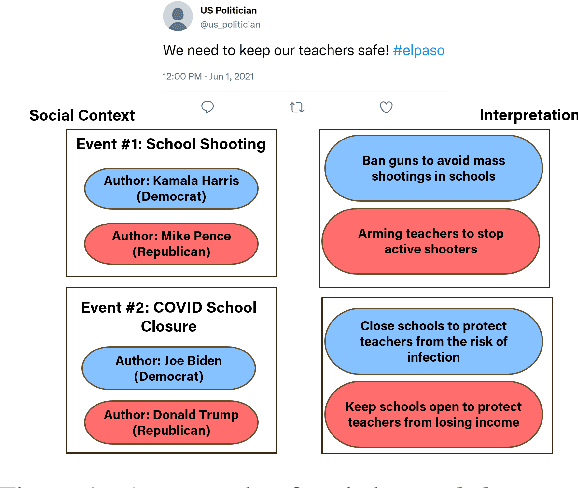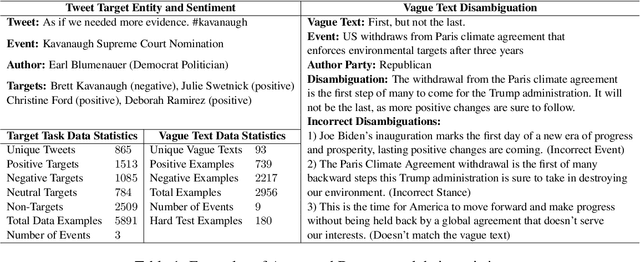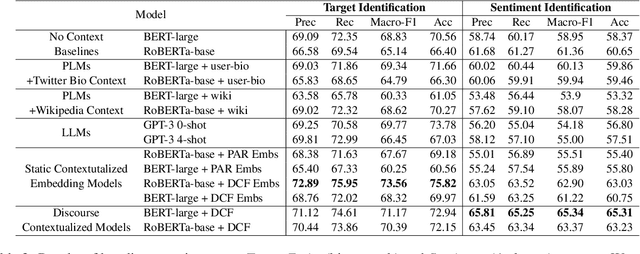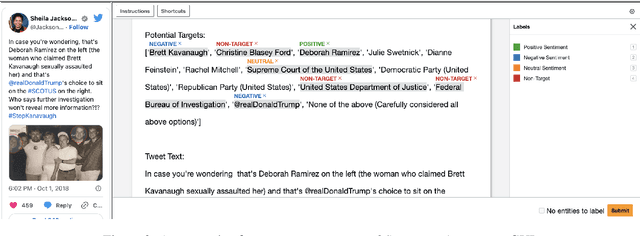"We Demand Justice!": Towards Grounding Political Text in Social Context
Paper and Code
Nov 15, 2023



Social media discourse from US politicians frequently consists of 'seemingly similar language used by opposing sides of the political spectrum'. But often, it translates to starkly contrasting real-world actions. For instance, "We need to keep our students safe from mass shootings" may signal either "arming teachers to stop the shooter" or "banning guns to reduce mass shootings" depending on who says it and their political stance on the issue. In this paper, we define and characterize the context that is required to fully understand such ambiguous statements in a computational setting and ground them in real-world entities, actions, and attitudes. To that end, we propose two challenging datasets that require an understanding of the real-world context of the text to be solved effectively. We benchmark these datasets against baselines built upon large pre-trained models such as BERT, RoBERTa, GPT-3, etc. Additionally, we develop and benchmark more structured baselines building upon existing 'Discourse Contextualization Framework' and 'Political Actor Representation' models. We perform analysis of the datasets and baseline predictions to obtain further insights into the pragmatic language understanding challenges posed by the proposed social grounding tasks.
 Add to Chrome
Add to Chrome Add to Firefox
Add to Firefox Add to Edge
Add to Edge